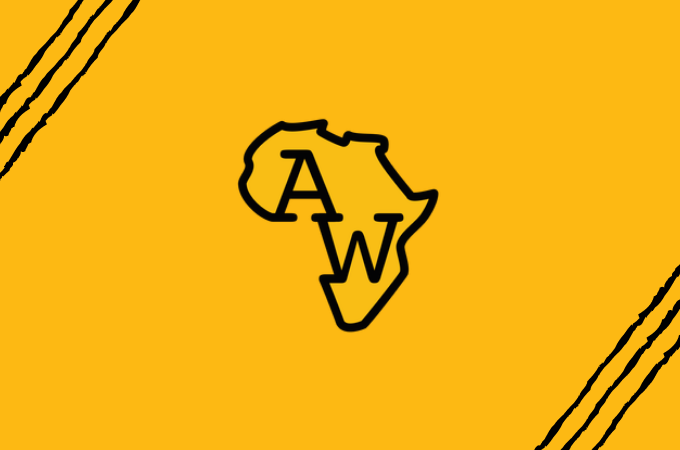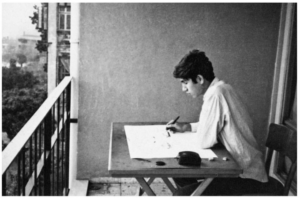
Literary platforms have been at the center of the on-going expansion of African literature in global cultural spaces. And where these platforms as online, they amplify writers’ voices in beautifully transnational networks of readers.
Africa in Words (AiW) is one such platform. It is the 2011 brain child of a team of five African literature and history PhD students —all women—at the University of Sussex (Brighton, UK). The site focuses on the cultural, artistic, and philosophical output of the African continent, the diaspora, and others who are literate in the field. Since its founding, the site has grown to house a robust team of volunteer writers and editors from academia and beyond.
In a note to Brittle Paper, AiW calls itself “an independent, entirely voluntary collective, fueled solely by the love, run by the collaborative effort of a small, close-knit editorial team.” The blog’s remote management system encourages conversations and connections to form between voices from all over the world. AiW is deeply committed to showcasing Africa’s infinite cultural multiplicity.
The editorial team is comprised wholly of academics. Many are women though not all of them personally have roots on the continent. Their interests overflow the borders of academia and of geographical location. And they find their work profoundly fulfilling in the ways in which it fosters community: “We set up the blog to give us a space where we could share interests and encounters through and beyond our academic work (and be distracted from it – watching Nollywood films, analyzing ads and obits in local papers, or reading pulp-fiction mags, all in the name of our “research,” ahem…). It was always, though, a space where, despite our sometimes disparate locations – Kigali to Brighton, Rio to Accra, Cape Town to Austin – we could come together and reach out to find connections with others.”
Writing about Africa is often implicated in a web of historical and political habits that must be constantly interrogated. AiW takes this challenge seriously: “Together we aim to hold the blog open as a supportive, flexible platform for timely, forward-thinking creative-critical comment, about and from both new and established contributors — writers, artists and makers, critics, educators and thinkers, curators, directors, publishers, and arts managers, and not limited to that number, either — and for networks to come together around a common focus on literary and cultural production and Africa.”
AiW’s posts fall into four overlapping categories: Reviews, Interviews (called Q&As), AiW Featured, and Words on the Times. AiW Featured and Words on the Times, the former in perhaps focusing more on the latest and the latter more on the timeless, include roundups of cultural events and news, cultural analysis and commentary, and anything else the team just wants to highlight.
As many of the contributors are academics or prize-winning, institutionally recognized artists, the tone of the blog posts tends toward the scholarly. The 2020 Caine Prize for African Writing is a topic of close observation in recent blog posts, and has largely determined the latest selection of book reviews. As such, AiW wages a postcolonial battle in an institutional, high-culture context. It insists on African representation, both in the voices it brings to the table and as an object of inquiry, in realms that have for too long excluded or undervalued it. It largely focuses on Anglophone and, to a lesser extent, Francophone works.
After 9 years, AiW continues to celebrate African writing and inspire a global community of readers to find fulfilling literary experiences in African books and ideas.









COMMENTS -
Reader Interactions